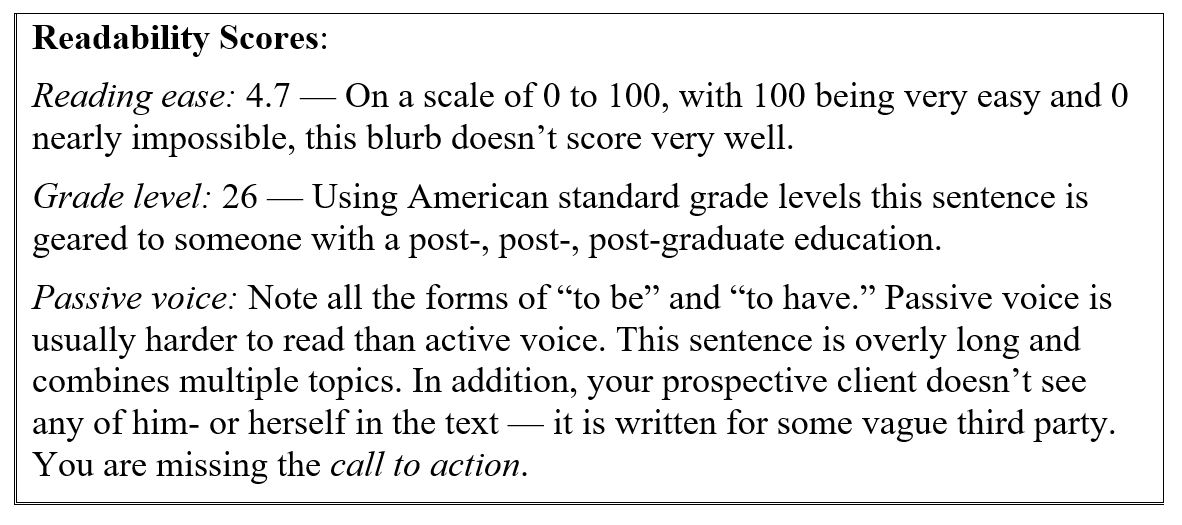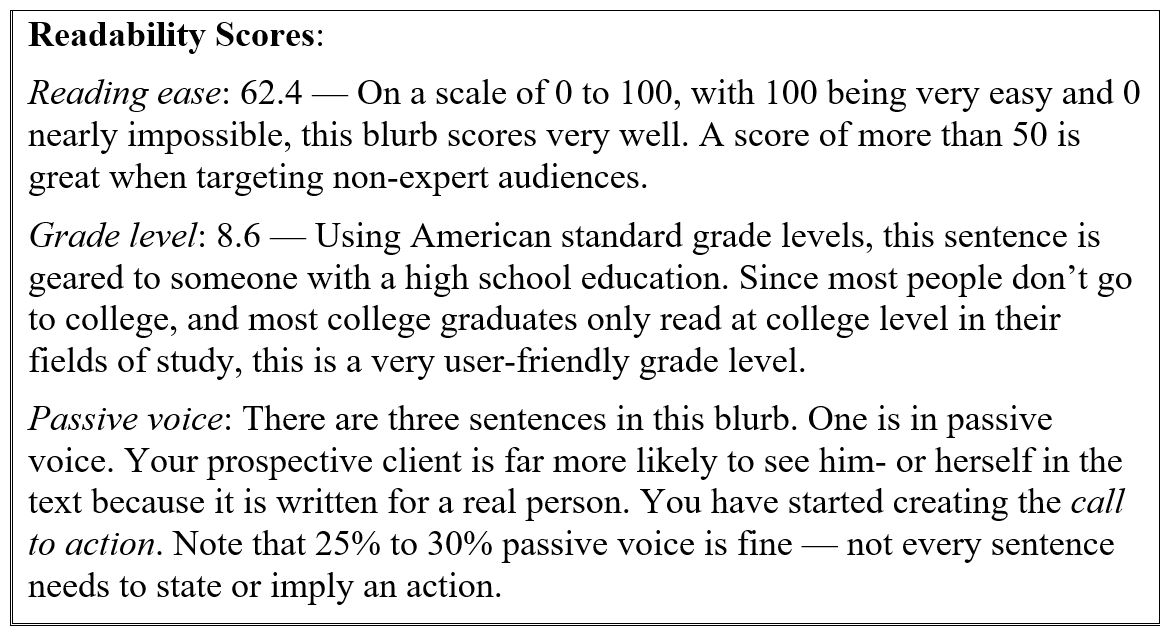Legal writing is challenging, but it's essential to communicate with those who may not have similar expertise. Writing in simple, plain language is the key
Before you write an email to a client or create website marketing content, do you stop and consider the audience for your materials? Or do you simply write what you feel is important and just put it out there? If you’re like most writers, the answer is probably the latter.
Legal writing is challenging. You spent three long years of your life learning to speak, write, read, and think like a lawyer. Now, however, you are communicating with people who rarely have your expertise or facility with language.
The Principles of Plain Language
In order to attract and engage your target audience you need to apply the following principles of “plain language.”
-
-
- Identify your audience.
- Write in clear, concise, and audience-friendly language.
- Use active voice to create a call to action.
- Use first and second person whenever possible.
- Avoid repetition.
-
Let’s take each of these in turn.
Identify your audience — This is essential because you are writing for people who do not have your expertise or legal education. Always ask yourself, “Who is my audience? What do I want them to do or say?” Write down this reminder of your audience so your writing stays on target.
Write in clear, concise, and audience-friendly language — Keep your sentences short — on average 15 words or less. Keep your paragraphs short — two to six sentences per paragraph to ensure only one topic in a paragraph. Look for conjunctions (and, or, and so forth) and make two or more sentences. Use bullets to call out key points rather than embedding your points in a lengthy sentence. Minimize use of multi-syllable words, fancy words, and prepositional phrases (think use rather than make utilization of.)
Use active voice — Active voice ensures your readers see themselves in what you have written. You can create a sense of importance, need, or urgency by using verbs that indicate something needs to be done or accomplished. If readers don’t see themselves in what you have written or put on your website, they will not feel called to action.
Use first and second person — Third person is boring and impersonal. Readers tend to think documents and content that is written in third person are either informational-only or written for someone else.
Avoid repetition — People tend to repeat information when speaking until they are sure the audience gets the point. With written material and web content this repetition is both unneeded and annoying — the reader can always go back and re-read something.
Writing in Plain Language
It’s important to remember that even attorneys are specialists — what makes sense to lawyers in one specialty may be almost meaningless or confusing to attorneys in another area of specialization. Would you hire a plumber who talks in circles using terminology you don’t understand when you need your sewer line cleared or a new hot water heater installed? Then why would you expect the plumber to hire you to draft a contract when the plumber has no idea what you are providing or how it impacts their business and clients?
Consider the following “mock” introductory content for a web’s landing page:
The Business Law Practice Group has been organized in such a way as to ensure clients’ needs are met in the most efficient manner possible since although we are often called upon to develop innovative approaches and solutions to unique challenges, but most clients’ transactions and legal requirements fall into recurring or limited categories.

Here’s a possible revision that makes your services far more accessible and understandable to a lay audience:
Our Business Law group is organized to ensure we meet your needs quickly and effectively. At Jones Law we specialize in targeted solutions to meet your specific business needs. Our goals are to support you and your business and help you succeed, because when our clients succeed, we succeed.

Ensuring your writing and web content are audience-friendly is a straightforward process, but one that is foreign to writers in any field, not just the legal profession. Taking a few extra minutes to identify your audience and your goals — in their language — goes a long way towards gaining the clients you want. By the way, this article’s readability scores are:







